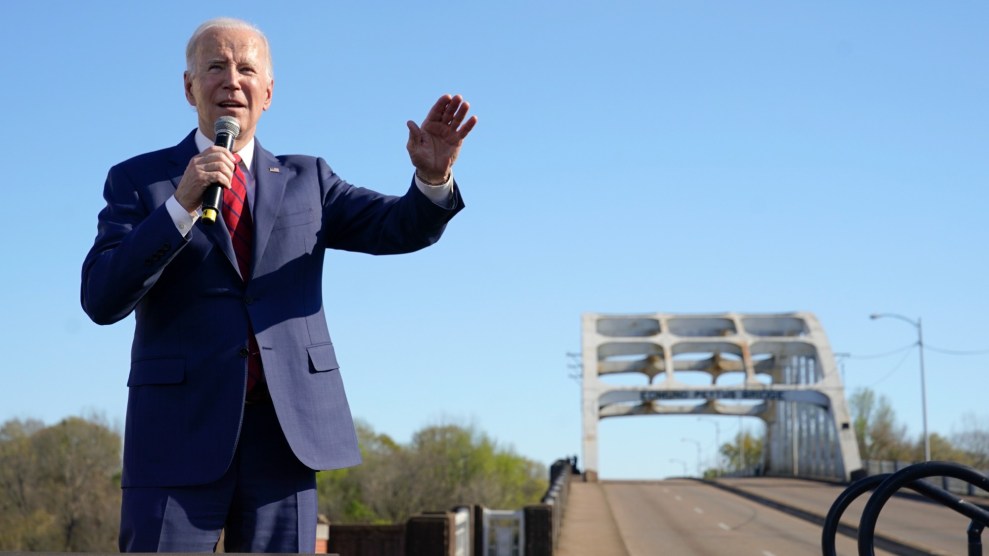
President Joe Biden speaks near the Edmund Pettus Bridge in Selma. Patrick Semansky/AP
On Sunday, President Joe Biden traveled to Selma, Alabama to commemorate the 58th anniversary of Bloody Sunday, the violent crackdown on voting rights activists, led by the late John Lewis and Hosea Williams, marching across the Edmund Pettus Bridge on their way to Montgomery. The brutal attack perpetrated by state troopers on March 7 left Lewis with a fractured skull and dozens of other peaceful protesters injured. It went on to play a decisive role in the passage of the Voting Rights Act of 1965, which was introduced just a few days after the attack to outlaw discriminatory voting practices.
During his speech in Selma, Biden reinforced the need to protect voting rights, a “threshold of democracy.” This fundamental right, he said, is under assault by the conservative Supreme Court and “a wave of states and dozens of voting laws fueled by the Big Lie and the election deniers now elected to office.”
Join me as I deliver remarks on the importance of commemorating Bloody Sunday in Selma, Alabama. https://t.co/Izs4gtw9zC
— President Biden (@POTUS) March 5, 2023
Then President President Lyndon B. Johnson described Selma as a moment when “history and fate meet at a single time in a single place” to become a turning point in the search for freedom. “This time, on this issue, there must be no delay, no hesitation, and no compromise with our purpose,” Johnson said when calling on Congress to pass the bill. “We cannot, we must not, refuse to protect the right of every American to vote in every election that he may desire to participate in…We have already waited a hundred years and more, and the time for waiting is gone.”
Biden has advocated for the passage of the John R. Lewis Voting Rights Advancement Act, which would help restore provisions of the landmark legislation weakened by a 2013 Supreme Court decision. Among other things, it would bring back the requirement that states with a history of voting discrimination receive clearance from the federal government before enacting changes in electoral laws and policies. The bill has failed in Congress so far. “I will not let the filibuster obstruct the sacred right to vote,” Biden said on Sunday.
Ahead of the president’s visit, a group of civil rights activists and faith leaders signed a letter demanding action on restoring and expanding voting rights and stating that “Selma is sacred ground, not a place for political pretense.” Selma, they wrote, was “the delivery room where the possibility of a true democracy was born” and anyone coming to that “sacred ground” should “come with a commitment to fight for what these people were willing to give their lives for.”
















